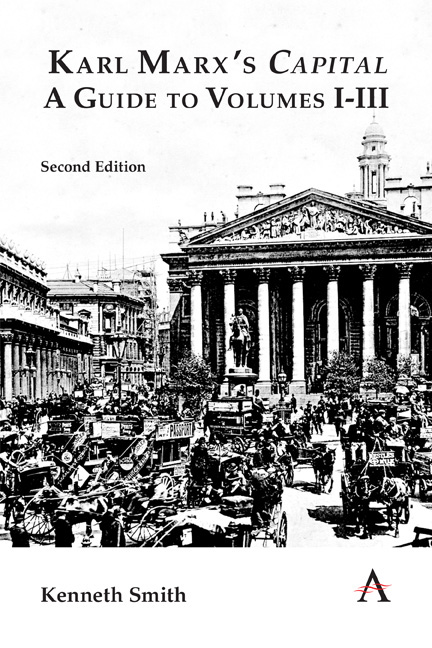Book contents
- Frontmatter
- Dedication
- Contents
- Preface to the Second Edition
- Introduction
- Part I The Development of the Capitalist Mode of Production
- Part II The Capitalist Mode of Production
- Part III The Underdevelopment of the Capitalist Mode of Production
- Part IV The Value Theory of Labour
- Conclusion to Part IV
- Conclusion
- Appendix: On Social Classes
- Notes
- Bibliography
- Index
- Frontmatter
- Dedication
- Contents
- Preface to the Second Edition
- Introduction
- Part I The Development of the Capitalist Mode of Production
- Part II The Capitalist Mode of Production
- Part III The Underdevelopment of the Capitalist Mode of Production
- Part IV The Value Theory of Labour
- Conclusion to Part IV
- Conclusion
- Appendix: On Social Classes
- Notes
- Bibliography
- Index
Summary
In the second part of this study we have looked at the nature of the capitalist mode of production itself and, specifically, at the question which is at the heart of Marx's discussion of this point, how the capitalist claims to be the legitimate owner of the capitalist enterprise. In doing this we have considered two further questions. Firstly, how is it possible that a single primitively accumulated capital can support the capitalist and/or his or her family, in perpetuity as it sometimes seems, without apparently ever becoming worn-out or needing to be replaced or renewed? And secondly, what is it then that causes the capitalist to accumulate their capital not just on an extending scale but on a progressively extending scale when it appears to reproduce itself on the same unchanging scale without any intervention on their part? As we have seen, Marx's answer to the first of these questions is quite clear: it is that the primitively accumulated capital with which the capitalist enterprise begins is not immortal but is in fact renewed and replaced in a successful capitalist enterprise on a more or less daily basis by all the people who work for the capitalist. As such, the capitalist's claim to be the legitimate owner of the enterprise in question is undermined to the extent that this is the case. However, Marx's answer to the second of these questions is much less clear and, as I have argued, is in fact incomplete. Why should capitalists accumulate their capital at all, and still less on an extended or a progressively extending scale, when there appears to be no materially compelling reason for them to do so? Why don't they simply reproduce this on the same unchanging scale and what are the consequences for the development of the capitalist mode of production itself if they were to do this? This is the issue we will now go on to consider in detail in Part III of this guide to Capital where we will look at the question of the possible underdevelopment of the CMP.
- Type
- Chapter
- Information
- Karl Marx's 'Capital': A Guide to Volumes I-III , pp. 79 - 80Publisher: Anthem PressPrint publication year: 2021



